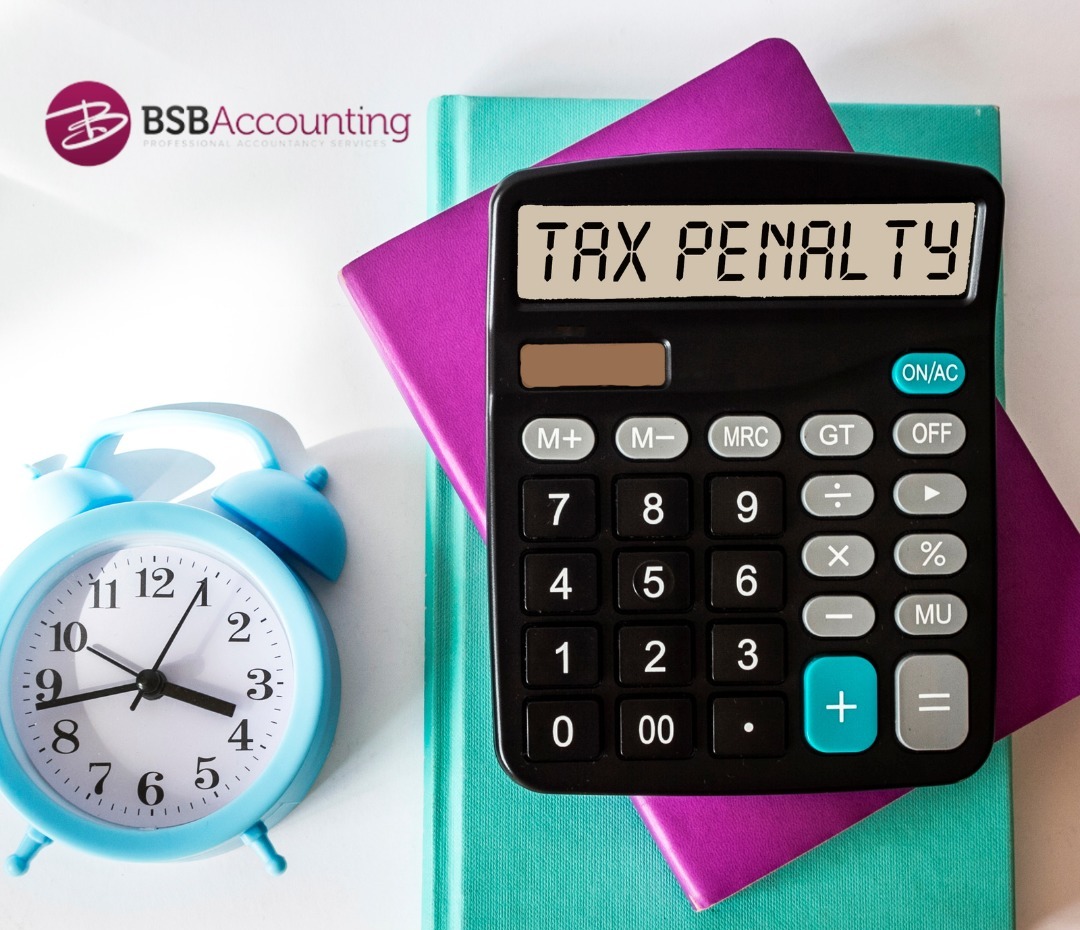Tax Penalties and how to avoid them
Posted on 15th March 2023 at 16:07
Whether you are a business owner or you're self-employed you are responsible for paying taxes. In order to do this you need to understand the rules and make sure you keep accurate records of your income and outgoings.
Tax Penalties and how to avoid them
Whether you are a business owner or you're self-employed you are responsible for paying taxes. In order to do this you need to understand the rules and make sure you keep accurate records of your income and outgoings. Having to do this on top of running your business can sometimes feel like a bit of a burden but if you don't keep on top of the financial side of your business it can cost you a lot in penalties, not to mention time spent trying to sort it all out.
This blog explains what the self-assessment penalties are, how to avoid them and how to appeal if you do get one.
What are the potential Self Assessment penalties?
HMRC pursue those who pay their taxes late or try to avoid it and they generate a lot of revenue from it. If you miss a deadline or make an error in your Self Assessment it can cost you a great deal, whether you actually owe tax or not.
The best way to avoid the stress and financial burden of a penalty is to understand why you might get one and what it will cost you if you do.
When to file to avoid a penalty
The deadlines for filing and paying your taxes are:
• 31st October — filing deadline for paper tax returns
• 31st January — filing deadline for online tax returns
• 31st January — deadline for paying the tax you owe
You will receive a penalty for filing late (late is deemed as after midnight on the due date)
To avoid this expense, you need to know the deadlines for filing and paying.
The penalties for filing late depend on how delayed you are and whether you owe any tax. The table below outlines the costs.
Late Filing Penalties
On the penalty date - an immediate fine of £100
3 months late charges of £10 per day for up to 90 days (a £900 maximum)
6 months late Fine of £300 or 5% of the tax due (whichever is greater)
12 months late - Additional fine of £300 or 5% to 100% of the tax due (whichever is greater and depending on the intention behind the missed deadline)
Learn more about late filing penalties on GOV.UK.
Penalties for late payments
You will only receive a late penalty if you owe tax. Missing the deadline for paying your tax liabilities means HMRC will charge you interest on the amount due. The charge is automatic and begins accruing as soon as you miss the deadline.
Charges are applied at 30 days, 6 months and 12 months after the tax payment due date.
The table below shows the costs and when they’re accrued.
Late Payment Penalties
30 days late 5% of the tax due
6 months late Additional fine of 5% of the tax due
12 months late Additional fine of 5% of the tax due
Learn more about late payment penalties on GOV.UK.
Errors in your Self Assessment tax return
If you make errors in your tax return or underestimate the tax you should pay HMRC may penalise you. You can also be penalised if you fail to notify them of an incorrect assessment.
The penalty you could receive depends on the type of behaviour cited and the assessment of taxpayer culpability. HMRC sorts behaviours they consider into the following categories:
1. Genuine error. You took reasonable care to correctly report your income and taxes (for example, if you submitted the wrong form but filled it out correctly).
2. Error due to negligence. A mistake resulted from failure to take reasonable care to report or pay taxes.
3. Deliberate errors. You made a mistake on purpose but did not attempt to hide it.
4. Concealed deliberate error. You made a deliberate error and made arrangements to conceal the mistake.
Penalties are also affected by whether or not you notify HMRC of an error yourself:
• Unprompted disclosure - you communicate the errors before HMRC sends you a penalty notice or starts looking into your records.
• Prompted disclosure - HMRC contacted you about an error and started an enquiry.
Once your behaviour and culpability are determined, HMRC calculates costs as a percentage of potential lost revenue (PLR) or the amount of tax you still need to pay once the error has been corrected. The table below outlines the range of errors and the penalties.
Penalties for errors
Types of behaviour Unprompted disclosure
(Cost as % of PLR) Prompted disclosure (Cost as % of PLR)
Genuine error No penalty No penalty
Error due to negligence 0% to 30% 15% to 30%
Deliberate error 20% to 70% 35% to 70%
Concealed deliberate error 30% to 100% 50% to 100%
Failure to notify or register penalties
HMRC can also penalise you for not registering for Self-Assessment or not notifying them of any changes that affect your tax liability.
If you’re eligible to register for Self-Assessment, you must do so by the assigned deadline (currently 5 October following the end of the tax year you started self-employment).
Failure to Notify
If you don't notify HMRC about anything affecting what you owe in taxes, you can receive a “failure to notify” tax penalty.
Learn more about failure to notify penalties at GOV.UK.
If keeping your accounts up to date and filing tax returns fills you with dread, the safest thing to do to avoid penalties and stress is to outsource it to a bookkeeper or accountant. Contact us if you feel you need help completing your accounts.
Share this post:







